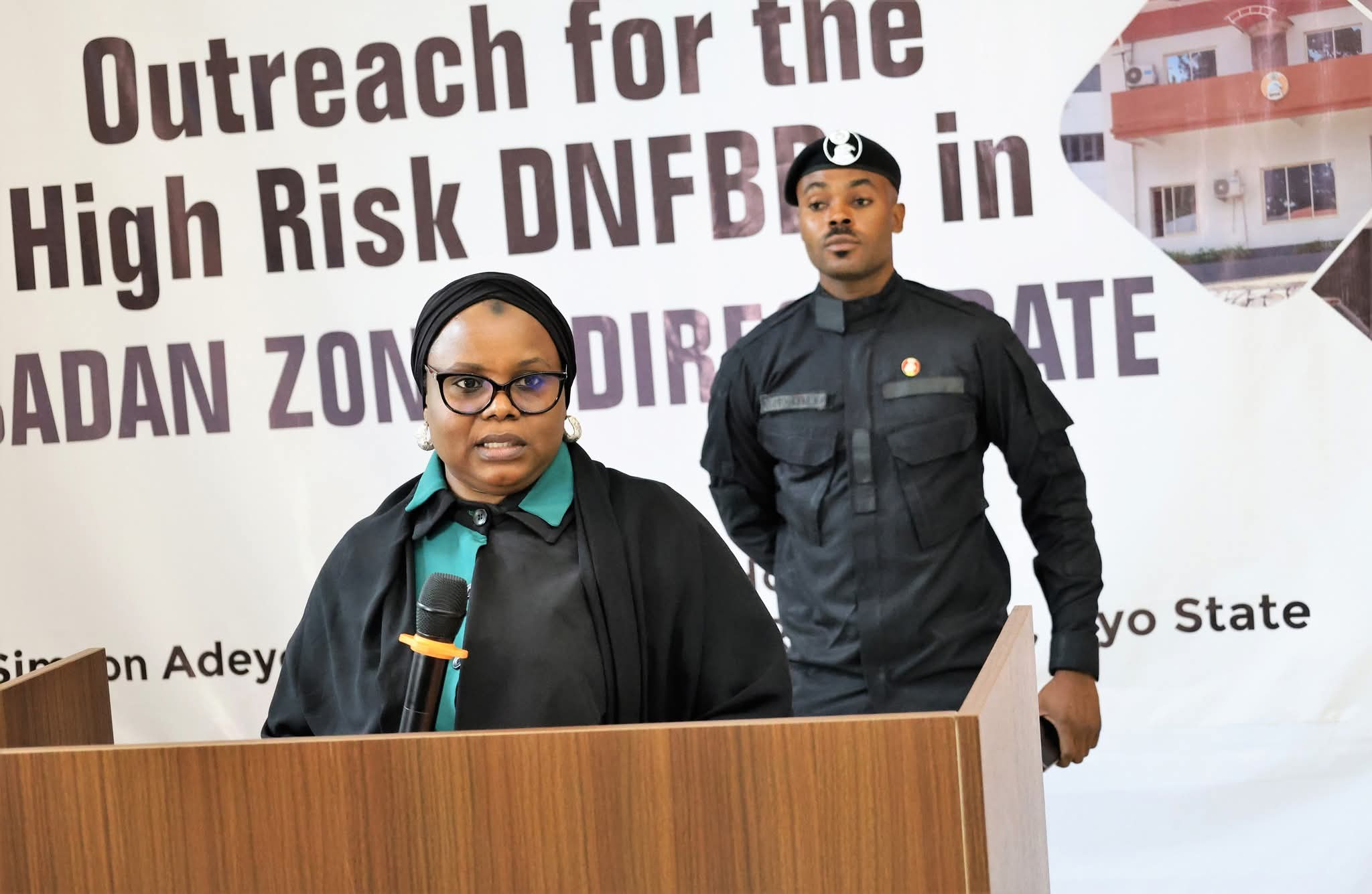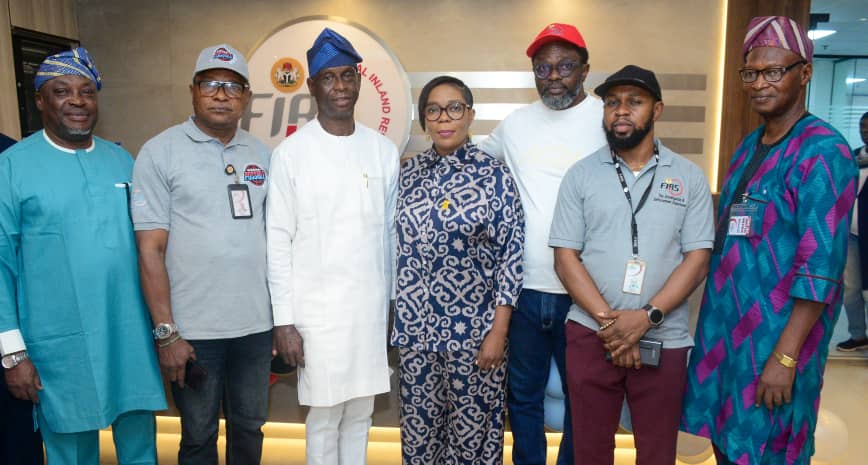The Executive Chairman of the Economic and Financial Crimes Commission (EFCC), Ola Olukoyede, has called for increased collaboration from Designated Non-Financial Businesses and Professionals (DNFBPs) to combat money laundering and protect key economic sectors from criminal exploitation.
Olukoyede made this appeal on Tuesday, July 22, 2025, during a one-day outreach program for high-risk DNFBPs, organized by the EFCC at The Jagz Ibadan Hotel. The event’s theme was “Effective Implementation of AML/CFT/CPF Measures among DNFBP in Nigeria.”
Represented by the Acting Director of the EFCC’s Ibadan Zonal Directorate, ACE I Hauwa Garba Ringim, Olukoyede lauded the cooperative efforts of DNFBPs and other stakeholders in implementing Anti-Money Laundering (AML), Combating Financing of Terrorism (CFT), and Countering Proliferation Financing (CPF) measures, as well as enforcing money laundering laws.
“Your presence here today signifies a more deliberate collaborative effort and greater commitment towards effective implementation of these measures and enforcement of the Money Laundering Law,” Olukoyede stated. He highlighted that DNFBPs such as lawyers, real estate agents, accountants, and dealers in solid minerals and precious metals are vital to the nation’s economy but can be exploited by criminals to launder illicit funds.
The EFCC boss underscored the critical need for DNFBPs to enhance their vigilance to prevent their sectors from being used as conduits for illicit funds or terrorism financing. He emphasized the importance of compliance with the Special Control Unit Against Money Laundering (SCUML), noting that it ensures businesses aren’t used for financial crimes.
Olukoyede reiterated that the EFCC has intensified its enforcement, outreach, and intelligence-sharing efforts to strengthen compliance across high-risk sectors and safeguard the integrity of the economy. He stressed that Nigeria’s standing in the global financial system largely depends on the effective implementation of AML/CFT/CPF measures, as non-compliance risks grey-listing and international restrictions, hindering economic development.
He further explained that Nigeria’s AML/CFT legal framework is primarily anchored on the Money Laundering (Prevention and Prohibition) Act, 2022, and the Terrorism (Prevention and Prohibition) Act, 2022. These laws provide a robust foundation for identifying, tracking, and penalizing illicit financial activities. Notably, the Money Laundering (Prevention and Prohibition) Act, 2022, grants the EFCC through SCUML full regulatory, enforcement, and administrative sanctioning powers against non-compliant DNFBPs.
Olukoyede affirmed that the EFCC, as the designated financial intelligence and law enforcement agency, is responsible for investigating and prosecuting financial crimes, including money laundering and terrorism financing. He added that the Commission, through SCUML, plays a central role in policy enforcement, ensuring DNFBPs adhere to preventive measures such as risk assessments, customer due diligence, and suspicious transaction reporting.
He also acknowledged the need to strengthen capacity and deepen understanding across all sectors, particularly among non-financial businesses. “This engagement is a step in that direction, designed to empower you with the tools and knowledge required to detect and prevent financial crimes,” he said, urging all participants to be partners in this fight. “Anti-money laundering compliance is not just a legal requirement, it is a moral and patriotic duty. Dirty money only thrives in silent systems. When professionals speak up and follow the rules, crime dies in the dark.”
Olukoyede emphasized that all DNFBPs are expected to make their transactions transparent for SCUML’s regulation. He warned that the new money laundering Act is stricter and non-compliance could lead to severe consequences for many DNFBPs. SCUML, he assured, will continue to guide, sensitize, and monitor DNFBPs to prevent the abuse of their businesses for money laundering.
The Head of SCUML, Ibadan Zonal Directorate of the EFCC, ACEII Oluwatoyin Ehindero, who represented the EFCC Director of SCUML, DCE Harry Erin, stated that the outreach’s core purpose was to sensitize high-risk DNFBPs for effective implementation of AML/CFT/CPF measures. She reiterated the deliberate efforts by the EFCC and relevant stakeholders to ensure Nigeria exits the FATF Grey List. “We need your sincere support to achieve the feat of winning the war against money laundering and financing of terrorism in the country,” she appealed.
The event saw participation from various sectors, including the Real Estate Developers Association of Nigeria (REDAN), car dealers, estate surveyors, valuers, dealers in precious stones and metals, hoteliers, accountants, and members of the Gemstones Dealers Association.
Olu Falodun, representing REDAN, delivered the vote of thanks on behalf of the participants, expressing appreciation to the EFCC for the insightful workshop. He acknowledged that the event served as an “eye-opener on money laundering and terrorism financing” and stressed the necessity of collaboration among all stakeholders to help Nigeria exit FATF’s Grey List.





